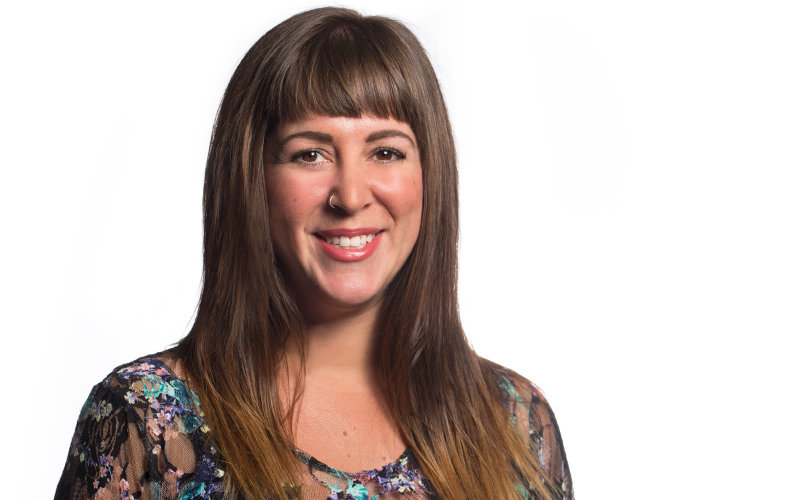
While working as a writer at Men’s Health, Chelsea Reynolds says she became fast friends with the publication’s sex writer.
“I was fascinated by her job and how her public persona — as The Girl Next Door — was integrated into the sex column’s editorial messaging,” says Reynolds, who went on to earn a master’s degree from the University of Missouri and a doctorate from the University of Minnesota before joining Cal State Fullerton this fall as an assistant professor of communications, and adviser for Tusk magazine.
“I had always been interested in sexuality and sexual health, but I didn’t know I wanted to research sexuality and gender in media systems until I worked in the field. I wrote my master’s thesis, ‘50 Ways to Seduce a Man vs. The Better Sex Diet: A Content Analysis of Sex Articles in Women’s and Men’s Lifestyle and Health Magazines,’ as an homage to my time at Men’s Health.”
Reynolds says her fascination continues to shape her research, presentations and publications.
What areas of continued scholarship and research interest you?
Broadly speaking, I am interested in the sociology of news and feminist media studies. In August, I won the Association for Education in Journalism and Mass Communication’s Mary Ann Yodelis Smith Award for feminist scholarship and the inaugural AEJMC Magazine Media Research Grant to continue working on a project analyzing race, gender and sexuality among DIY zine-makers in Chicago and Southern California. My ongoing research will include interviews with queer Latinx zinesters in the Los Angeles area.
I’m especially interested in how marginalized communities are represented in the news, and how they create new media to represent themselves when mass depictions fail them. I have a chapter titled “Magazines’ Constructions of Sexuality” coming out in the “Handbook of Magazine Studies” next year, and I’m sharing portions of my doctoral dissertation, which analyzed news coverage of Craigslist sex forums and sexual identity in Craigslist culture.
What do you hope students get from your instruction and expertise?
I take a feminist approach to teaching that emphasizes equality and openness in the classroom. So rather than relying on my expertise, I help my students learn the research and writing skills they need to become experts in their own areas of interest. I hope my students become strong critical thinkers with a solid understanding of intersectionality and social justice ethics.
How do you use your research on the media’s coverage of sex, sexuality and sexism with students to encourage their growth as journalists?
I demonstrate through my own work on sexuality and media culture that you can build an entire career around a good research question and strong writing skills. I explain sex, sexuality and sexism as my beat. And academic writing is my medium. By requiring my reporting and news literacy students to blog about beats of their own choosing, I let them explore their topical interests while they develop a digital media presence and a professional writing portfolio. I think it’s crucial that we encourage students to harness their passions for a paycheck.